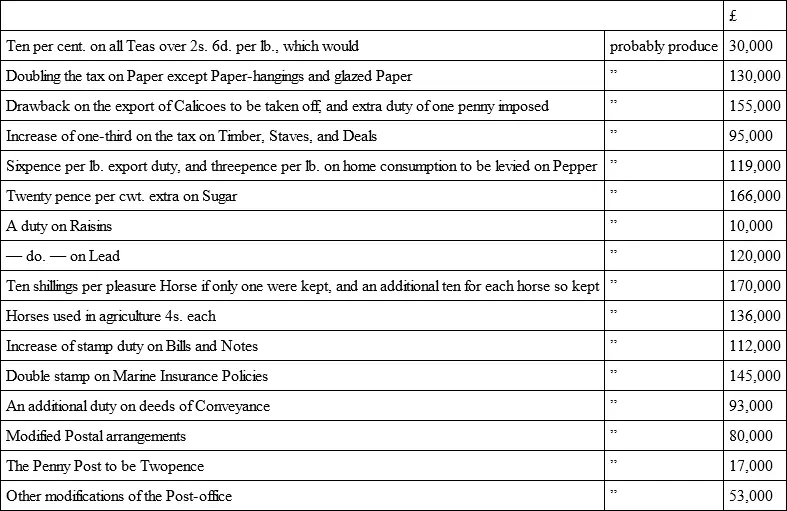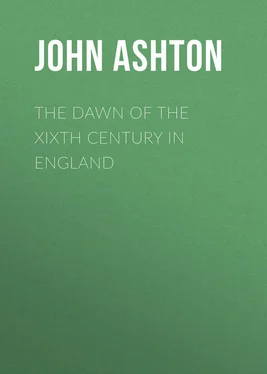John Ashton - The Dawn of the XIXth Century in England
Здесь есть возможность читать онлайн «John Ashton - The Dawn of the XIXth Century in England» — ознакомительный отрывок электронной книги совершенно бесплатно, а после прочтения отрывка купить полную версию. В некоторых случаях можно слушать аудио, скачать через торрент в формате fb2 и присутствует краткое содержание. Жанр: foreign_antique, foreign_prose, на английском языке. Описание произведения, (предисловие) а так же отзывы посетителей доступны на портале библиотеки ЛибКат.
- Название:The Dawn of the XIXth Century in England
- Автор:
- Жанр:
- Год:неизвестен
- ISBN:нет данных
- Рейтинг книги:3 / 5. Голосов: 1
-
Избранное:Добавить в избранное
- Отзывы:
-
Ваша оценка:
- 60
- 1
- 2
- 3
- 4
- 5
The Dawn of the XIXth Century in England: краткое содержание, описание и аннотация
Предлагаем к чтению аннотацию, описание, краткое содержание или предисловие (зависит от того, что написал сам автор книги «The Dawn of the XIXth Century in England»). Если вы не нашли необходимую информацию о книге — напишите в комментариях, мы постараемся отыскать её.
The Dawn of the XIXth Century in England — читать онлайн ознакомительный отрывок
Ниже представлен текст книги, разбитый по страницам. Система сохранения места последней прочитанной страницы, позволяет с удобством читать онлайн бесплатно книгу «The Dawn of the XIXth Century in England», без необходимости каждый раз заново искать на чём Вы остановились. Поставьте закладку, и сможете в любой момент перейти на страницу, на которой закончили чтение.
Интервал:
Закладка:
On the 1st of January, also, was a proclamation issued, altering the Prayer-book to suit the change, and, as some readers would like to know these alterations, I give them.
“In the Book of Common Prayer, Title Page, instead of ‘The Church of England,’ put ‘of the United Church of England and Ireland.’
“Prayer for the High Court of Parliament, instead of Our Sovereign, and his Kingdoms,’ read ‘and his Dominions.’
“The first Prayer to be used at sea, instead of ‘His Kingdoms,’ read ‘His Dominions.’
“In the form and manner of making, ordaining, and consecrating of Bishops, Priests, and Deacons, instead of the order ‘of the Church of England,’ read ‘of the United Church of England and Ireland.’
“In the preface of the said form, in two places, instead of ‘Church of England,’ read ‘in the United Church of England and Ireland.’
“In the first question in the Ordination of Priests, instead of ‘Church of England,’ read ‘of this United Church of England and Ireland.’
“In the Occasional Offices, 25th of October, the King’s accession, instead of ‘these realms,’ read ‘this realm.’
“In the Collect, before the Epistle, instead of ‘these Kingdoms,’ read ‘this United Kingdom.’
“For the Preachers, instead of ‘King of Great Britain, France, and Ireland,’ say, ‘King of the United Kingdom of Great Britain and Ireland.’”
The Union gave seats in the Imperial Parliament to one hundred commoners, twenty-eight temporal peers, who were elected for life, and four bishops representing the clergy, taking their places in rotation. 13 13 There is verily “nothing new under the sun.” On January 22nd, the first Parliament of the United Kingdom met. Addington was chosen Speaker, and members were sworn in. On the 2nd of February the King opened the Session with a speech, and on the very next day, 3rd of February, an Irish member was twice called to order by the Speaker . He was a Mr. Martin of Galway, a gentleman who afterwards complained of his speech being reported in italics, and plaintively asked, “Mr. Speaker, did I speak in italics?”
The heavens marked the advent of the New Century by the discovery, by the Italian astronomer Piazzi, of the Planet Ceres on the 1st of January; and, to begin the year in a proper and pious manner, a proclamation was issued that a general fast was to be observed in England and Ireland, on the 13th, and in Scotland, on the 12th of February.
The cry of scarcity of food still continued; wheat was mounting higher and higher in price. In January it was 137s. a quarter, and it rose still higher. The farmers must have had a good time of it, as the Earl of Warwick declared in Parliament (November 14, 1800), they were making 200 per cent. profit. “Those who demanded upwards of 20s. a bushel for their corn, candidly owned that they would be contented with 10s. provided other farmers would bring down their prices to that standard.” And again (17th of November) he said: “He should still contend that the gains of the farmer were enormous, and must repeat his wish, that some measure might be adopted to compel him to bring his corn to market, and to be contented with a moderate profit. He wondered not at the extravagant style of living of some of the farmers, who could afford to play guinea whist, and were not contented with drinking wine only, but even mixed brandy with it; on farms from which they derived so much profit, they could afford to leave one-third of the lands they rented wholly uncultivated, the other two-thirds yielding them sufficient gain to support all their lavish expenditure.”
Still the prosperity of the farmer must have been poor consolation to those who were paying at the rate of our half-crown for a quartern loaf, so that it is no wonder that the authorities were obliged to step in, and decree that from January 31, 1801, the sale of fine wheaten bread should be forbidden, and none used but that which contained the bran, or, as we should term it, brown, or whole meal, bread.
The poor French prisoners, of course, suffered, and were in a most deplorable condition, more especially because the French Government refused to supply them with clothes. They had not even the excuse that they clothed their English prisoners, for our Government looked well after them in that matter, however much they may have suffered in other ways.
On the 18th of February Pitt opened his budget, and as an increase was needed of over a million and three quarters, owing to the war, and interest of loan, new taxes were proposed as follows:

There had been political dissatisfactions for some time past, which was dignified with the name of sedition, but the malcontents were lightly dealt with. On the 2nd of March those who had been confined in the Tower and Tothill Fields were liberated on their own recognizances except four – Colonel Despard, Le Maitre, Galloway, and Hodgson, who, being refused an unconditional discharge, preferred to pose as martyrs, and were committed to Tothill Fields. Of Colonel Despard we shall have more to say further on. Vinegar Hill had not been forgotten in Ireland, and sedition, although smothered, was still alight, so that an Act had to be introduced, prolonging the suspension of the Habeas Corpus Act in that kingdom.
In this year, too, was brought in a Bill which became law, preventing clergymen in holy orders from sitting in the House of Commons. This was brought about by the election (this sessions) of the Rev. John Horne Tooke for Old Sarum, a rotten borough, which in 1832 was disfranchised, as it returned two members, and did not have very many more voters. Tooke had been a partizan of Wilkes, and belonged, as we should now term it, to the Radical party, a fact which may probably have had something to do with the introduction of the Bill, as there undoubtedly existed an undercurrent of dissatisfaction, which was called sedition. Doubtless societies of the disaffected existed, and a secret commission, which sat for the purpose of exposing them, reported, on the 27th of April, that an association for seditious purposes had been formed under the title of United Britons, the members whereof were to be admitted by a test.
The question of feeding the French prisoners of war again turned up, and as it was not well understood, the Morning Post , 1st of September, 1801, thus explains matters: “Much abuse is thrown out against the French Government for not providing for the French prisoners in this country. We do not mean to justify its conduct; but the public should be informed how the question really stands. It is the practice of all civilized nations to feed the prisoners they take. Of course the French prisoners were kept at the expense of the English Government till, a few years ago, reports were circulated of their being starved and ill-treated. The French Government, in hopes of stigmatizing the English Ministry as guilty of such an enormous offence, offered to feed the French prisoners here at its own expense; a proposal, which was readily accepted, as it saved much money to this country; but the French Government has since discontinued its supplies, and thus paid a compliment to our humanity at the expense of our purse. In doing this, however, France has only reverted to the established practice of war, and all the abuse of the Treasury journals for withholding the supplies to the French prisoners, only betrays a gross ignorance of the subject.”
Of their number, the Morning Post , 16th of October, 1801, says, “The French prisoners in this country at present amount to upwards of 20,000, and they are all effective men, the sick having been sent home from time to time as they fell ill. Of these 20,000 men, nine out of ten are able-bodied seamen; they are the best sailors of France, the most daring and enterprising, who have been mostly employed in privateers and small cruisers.” Some of them had been confined at Portsmouth for eight years!
Читать дальшеИнтервал:
Закладка:
Похожие книги на «The Dawn of the XIXth Century in England»
Представляем Вашему вниманию похожие книги на «The Dawn of the XIXth Century in England» списком для выбора. Мы отобрали схожую по названию и смыслу литературу в надежде предоставить читателям больше вариантов отыскать новые, интересные, ещё непрочитанные произведения.
Обсуждение, отзывы о книге «The Dawn of the XIXth Century in England» и просто собственные мнения читателей. Оставьте ваши комментарии, напишите, что Вы думаете о произведении, его смысле или главных героях. Укажите что конкретно понравилось, а что нет, и почему Вы так считаете.












